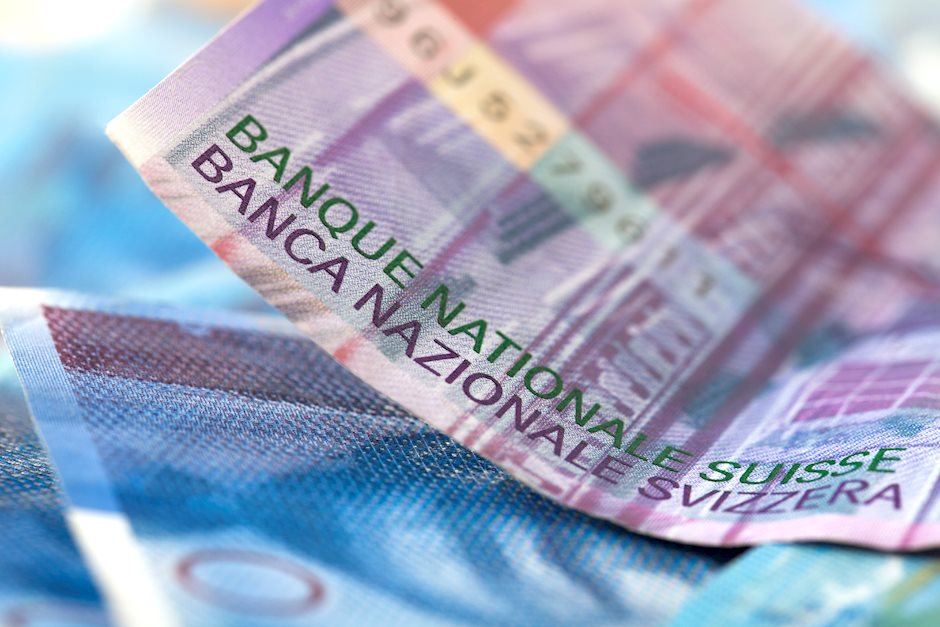USD/CHF depreciates to near 0.8650, downside risk seems restrained due to higher US yields
- USD/CHF may regain its ground as US Treasury yields continue to surge.
- CME FedWatch Tool suggests an 86.9% chance of the Fed’s 25-basis-point rate cut in November, with expecting no bumper cut.
- The Swiss Franc faces challenges as lower inflation reinforces the likelihood of another rate cut by the SNB in December.

USD/CHF offers its gains from the previous session, trading around 0.8650 during the early European hours on Tuesday. This downside of the pair could be limited as the US Dollar (USD) gained support following a surge in US Treasury yields, which climbed over 2% on Monday. At the time of writing, the 2-year and 10-year US Treasury bond yields stand at 4.04% and 4.20%, respectively.
Recent economic data dispelled the likelihood of a bumper rate cut by the Federal Reserve (Fed) in November. According to the CME FedWatch Tool, the likelihood of a 25-basis-point rate cut in November is 89.1%, with no expectation of a larger 50-basis-point cut.
On Monday, Federal Reserve Bank of Minneapolis President Neel Kashkari highlighted that the Fed is closely monitoring the US labor market for signs of rapid destabilization. Kashkari cautioned investors to anticipate a gradual pace of rate cuts over the coming quarters, suggesting that any monetary easing will likely be moderate rather than aggressive.
The Swiss Franc (CHF) faces pressure as a continued slowdown in Swiss inflation strengthens expectations of another rate cut by the Swiss National Bank (SNB) at its upcoming December meeting. In September, the SNB reduced its key rate for the third time in a row by 0.25%, bringing it to 1%. Inflation also fell for the third consecutive month, reaching 0.8% in September—its lowest level in over three years—down from 1.1% in August.
However, the CHF could find support from safe-haven demand amid uncertainty surrounding the US election and rising geopolitical tensions in the Middle East. Israel's strikes on Hezbollah-linked financial sites in Beirut have heightened fears of an escalating conflict.
In the US presidential race, Democratic candidate Kamala Harris and Republican Donald Trump delivered contrasting messages as they worked to sway undecided voters in the final two weeks leading up to Election Day.
Swiss economy FAQs
Switzerland is the ninth-largest economy measured by nominal Gross Domestic Product (GDP) in the European continent. Measured by GDP per capita – a broad measure of average living standards –, the country ranks among the highest in the world, meaning that it is one the richest countries globally. Switzerland tends to be in the top spots in global rankings about living standards, development indexes, competitiveness or innovation.
Switzerland is an open, free-market economy mainly based on the services sector. The Swiss economy has a strong export sector, and the neighboring European Union (EU) is its main trading partner. Switzerland is a leading exporter of watches and clocks, and hosts leading firms in the food, chemicals and pharmaceutical industries. The country is considered to be an international tax haven, with significantly low corporate and income tax rates compared with its European neighbors.
As a high-income country, the growth rate of the Swiss economy has diminished over the last decades. Still, its political and economic stability, its high education levels, top-tier firms in several industries and its tax-haven status have made it a preferred destination for foreign investment. This has generally benefited the Swiss Franc (CHF), which has historically kept relatively strong against its main currency peers. Generally, a good performance of the Swiss economy – based on high growth, low unemployment and stable prices – tends to appreciate CHF. Conversely, if economic data points to weakening momentum, CHF is likely to depreciate.
Switzerland isn’t a commodity exporter, so in general commodity prices aren’t a key driver of the Swiss Franc (CHF). However, there is a slight correlation with both Gold and Oil prices. With Gold, CHF’s status as a safe-haven and the fact that the currency used to be backed by the precious metal means that both assets tend to move in the same direction. With Oil, a paper released by the Swiss National Bank (SNB) suggests that the rise in Oil prices could negatively influence CHF valuation, as Switzerland is a net importer of fuel.
Author

Akhtar Faruqui
FXStreet
Akhtar Faruqui is a Forex Analyst based in New Delhi, India. With a keen eye for market trends and a passion for dissecting complex financial dynamics, he is dedicated to delivering accurate and insightful Forex news and analysis.
















